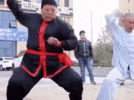AllBuffs | Unofficial fan site for the University of Colorado at Boulder Athletics programs
-
Prime Time. Prime Time. Its a new era for Colorado football. Consider signing up for a club membership! For $20/year, you can get access to all the special features at Allbuffs, including club member only forums, dark mode, avatars and best of all no ads ! But seriously, please sign up so that we can pay the bills. No one earns money here, and we can use your $20 to keep this hellhole running. You can sign up for a club membership by navigating to your account in the upper right and clicking on "Account Upgrades". Make it happen!
You are using an out of date browser. It may not display this or other websites correctly.
You should upgrade or use an alternative browser.
You should upgrade or use an alternative browser.
Your current feelings on CU football
- Thread starter Duff Man
- Start date
I thought of you when I read this quote from "In the Distance" by Hernan Diaz -
"It seemed to Håkan that these beasts were made out of two different bodies ineptly put together. Their hind legs and quarters were positively equine—slender and toned—but with the last rib began a transformation, and, as if nature had changed its mind halfway through it, the animal swelled in a stupendous, monstrous fashion, suddenly becoming thicker and taller. Its back rose steeply and abruptly, leading to a head so massive (could that dense, anvil-solid block of bone that seemed impenetrable even to sound contain a brain or any flesh at all?) that, compared to the animal’s smaller back end, it seemed to have been dreamed onto the rest of the body. Below a pair of sharp horns, a pair of black eyes had been bored into either side of the skull. If any of the beasts that Håkan had seen in America had ever resembled his brother’s fabulous inventions, that creature was the buffalo."
"It seemed to Håkan that these beasts were made out of two different bodies ineptly put together. Their hind legs and quarters were positively equine—slender and toned—but with the last rib began a transformation, and, as if nature had changed its mind halfway through it, the animal swelled in a stupendous, monstrous fashion, suddenly becoming thicker and taller. Its back rose steeply and abruptly, leading to a head so massive (could that dense, anvil-solid block of bone that seemed impenetrable even to sound contain a brain or any flesh at all?) that, compared to the animal’s smaller back end, it seemed to have been dreamed onto the rest of the body. Below a pair of sharp horns, a pair of black eyes had been bored into either side of the skull. If any of the beasts that Håkan had seen in America had ever resembled his brother’s fabulous inventions, that creature was the buffalo."
Optimism?
Flat_Iron_Rising
Homebrew & Prime Time = HEAVEN
I believe CP has done more for CU than almost anyone, ever. But, he's not a great gameday coach. How can we abandon the run, when we're getting killed trying to pass? From Rooney's article. He makes great points. 7 actual run attempts? I wonder what guys like Smoke think?
"It didn’t take until game eight to realize the Buffs just aren’t going to have a dominant ground attack. Yet Saturday’s loss at UCLA was the first time this year CU simply waved the white flag on running the ball.
CU running backs totaled just 11 carries against the Bruins. Four of those were squarely within let’s-just-get-off-the field situations — a run by Dylan Edwards on third-and-18 while backed up at the 12-yard line late in the second quarter; two carries by Anthony Hankerson while running out the clock at the end of the half; and another run-out-the-clock carry for Alton McCaskill at the end of the game.
There have been times, like at Oregon, when the deficit dictated a more pass-happy approach. The game at UCLA, close for the bulk of the night, wasn’t one of those times. Afterward head coach Deion Sanders defended the play-calling imbalance by referencing how the Buffs had been committed to the run on a pair of first downs in the first half that went awry. But if that’s why the running backs essentially were non-existent from the middle of the second quarter through the final full drive of the game, then CU’s staff isn’t doing enough to help a struggling offensive line.
On one of the two first down plays referenced by coach Sanders, Hankerson was thrown for a five-yard loss early in the second quarter. After an incompletion and a sack of Shedeur Sanders forced a punt, the Buffs called six pass plays on the next drive, which resulted in two sacks, 21 yards and a punt. On the next drive Edwards had a two-yard loss on first down, and that pretty much was the end of the run game until McCaskill and Sy’veon Wilkerson combined for 20 yards on three carries on CU’s last-ditch touchdown drive late in the fourth quarter.
Having an effective running game requires patience and dedication, neither of which have been on display in CU’s play-calling. Shedeur Sanders is the Buffs’ best player, and CU should be throwing more than running. And, going against the top defense in the Pac-12, the Buffs weren’t going to run through the Bruins. But there was more than ample opportunity to try to establish a rhythm in the run game early, and despite not really trying to run the ball the final tally for CU’s four running backs was a very serviceable ratio of 11 carries for 45 yards. CU’s opening field goal drive featured just one running play (a three-yard Edwards run on second-and-one). The Buffs ran eight plays in Bruins territory on that march, all of them pass calls. After a Travis Hunter interception, CU ran six more plays in Bruins turf, five passes and an eight-yard Edwards run.
Abandoning the run is a disservice to Shedeur Sanders, given the beating he is taking, and the line. One of the seven sacks endured by Shedeur occurred when he made a play-action run fake with the back, only to find two UCLA defenders already in his face. It’s on the line that defenders were that deep in the backfield that quickly, but when you don’t run the ball, those defenders can ignore play-fakes. Moreover, there isn’t an offensive lineman alive, past or present, who enjoys pass blocking more than run blocking. We know this line is poor at pass protection. We don’t really know how efficient they are at run blocking. Breaking just a few decent runs early can help linemen settle into a game in much the same way short, early throws can get a quarterback in rhythm.
When CU offensive coordinator Sean Lewis was the head coach at Kent State last year, his club ran the ball 60% of the time. Currently, CU’s top four running backs have gotten the call about 29% of the time. That’s not a perfect comparison, as Kent State used more designed runs for its quarterback than CU does. But that doesn’t explain the chasm-like disparity, and there appears to be a growing disconnect with the play-calling resume Lewis brought to Boulder and the approach we’re seeing on the field."
"It didn’t take until game eight to realize the Buffs just aren’t going to have a dominant ground attack. Yet Saturday’s loss at UCLA was the first time this year CU simply waved the white flag on running the ball.
CU running backs totaled just 11 carries against the Bruins. Four of those were squarely within let’s-just-get-off-the field situations — a run by Dylan Edwards on third-and-18 while backed up at the 12-yard line late in the second quarter; two carries by Anthony Hankerson while running out the clock at the end of the half; and another run-out-the-clock carry for Alton McCaskill at the end of the game.
There have been times, like at Oregon, when the deficit dictated a more pass-happy approach. The game at UCLA, close for the bulk of the night, wasn’t one of those times. Afterward head coach Deion Sanders defended the play-calling imbalance by referencing how the Buffs had been committed to the run on a pair of first downs in the first half that went awry. But if that’s why the running backs essentially were non-existent from the middle of the second quarter through the final full drive of the game, then CU’s staff isn’t doing enough to help a struggling offensive line.
On one of the two first down plays referenced by coach Sanders, Hankerson was thrown for a five-yard loss early in the second quarter. After an incompletion and a sack of Shedeur Sanders forced a punt, the Buffs called six pass plays on the next drive, which resulted in two sacks, 21 yards and a punt. On the next drive Edwards had a two-yard loss on first down, and that pretty much was the end of the run game until McCaskill and Sy’veon Wilkerson combined for 20 yards on three carries on CU’s last-ditch touchdown drive late in the fourth quarter.
Having an effective running game requires patience and dedication, neither of which have been on display in CU’s play-calling. Shedeur Sanders is the Buffs’ best player, and CU should be throwing more than running. And, going against the top defense in the Pac-12, the Buffs weren’t going to run through the Bruins. But there was more than ample opportunity to try to establish a rhythm in the run game early, and despite not really trying to run the ball the final tally for CU’s four running backs was a very serviceable ratio of 11 carries for 45 yards. CU’s opening field goal drive featured just one running play (a three-yard Edwards run on second-and-one). The Buffs ran eight plays in Bruins territory on that march, all of them pass calls. After a Travis Hunter interception, CU ran six more plays in Bruins turf, five passes and an eight-yard Edwards run.
Abandoning the run is a disservice to Shedeur Sanders, given the beating he is taking, and the line. One of the seven sacks endured by Shedeur occurred when he made a play-action run fake with the back, only to find two UCLA defenders already in his face. It’s on the line that defenders were that deep in the backfield that quickly, but when you don’t run the ball, those defenders can ignore play-fakes. Moreover, there isn’t an offensive lineman alive, past or present, who enjoys pass blocking more than run blocking. We know this line is poor at pass protection. We don’t really know how efficient they are at run blocking. Breaking just a few decent runs early can help linemen settle into a game in much the same way short, early throws can get a quarterback in rhythm.
When CU offensive coordinator Sean Lewis was the head coach at Kent State last year, his club ran the ball 60% of the time. Currently, CU’s top four running backs have gotten the call about 29% of the time. That’s not a perfect comparison, as Kent State used more designed runs for its quarterback than CU does. But that doesn’t explain the chasm-like disparity, and there appears to be a growing disconnect with the play-calling resume Lewis brought to Boulder and the approach we’re seeing on the field."
I believe CP has done more for CU than almost anyone, ever. But, he's not a great gameday coach. How can we abandon the run, when we're getting killed trying to pass? From Rooney's article. He makes great points. 7 actual run attempts? I wonder what guys like Smoke think?
"It didn’t take until game eight to realize the Buffs just aren’t going to have a dominant ground attack. Yet Saturday’s loss at UCLA was the first time this year CU simply waved the white flag on running the ball.
CU running backs totaled just 11 carries against the Bruins. Four of those were squarely within let’s-just-get-off-the field situations — a run by Dylan Edwards on third-and-18 while backed up at the 12-yard line late in the second quarter; two carries by Anthony Hankerson while running out the clock at the end of the half; and another run-out-the-clock carry for Alton McCaskill at the end of the game.
There have been times, like at Oregon, when the deficit dictated a more pass-happy approach. The game at UCLA, close for the bulk of the night, wasn’t one of those times. Afterward head coach Deion Sanders defended the play-calling imbalance by referencing how the Buffs had been committed to the run on a pair of first downs in the first half that went awry. But if that’s why the running backs essentially were non-existent from the middle of the second quarter through the final full drive of the game, then CU’s staff isn’t doing enough to help a struggling offensive line.
On one of the two first down plays referenced by coach Sanders, Hankerson was thrown for a five-yard loss early in the second quarter. After an incompletion and a sack of Shedeur Sanders forced a punt, the Buffs called six pass plays on the next drive, which resulted in two sacks, 21 yards and a punt. On the next drive Edwards had a two-yard loss on first down, and that pretty much was the end of the run game until McCaskill and Sy’veon Wilkerson combined for 20 yards on three carries on CU’s last-ditch touchdown drive late in the fourth quarter.
Having an effective running game requires patience and dedication, neither of which have been on display in CU’s play-calling. Shedeur Sanders is the Buffs’ best player, and CU should be throwing more than running. And, going against the top defense in the Pac-12, the Buffs weren’t going to run through the Bruins. But there was more than ample opportunity to try to establish a rhythm in the run game early, and despite not really trying to run the ball the final tally for CU’s four running backs was a very serviceable ratio of 11 carries for 45 yards. CU’s opening field goal drive featured just one running play (a three-yard Edwards run on second-and-one). The Buffs ran eight plays in Bruins territory on that march, all of them pass calls. After a Travis Hunter interception, CU ran six more plays in Bruins turf, five passes and an eight-yard Edwards run.
Abandoning the run is a disservice to Shedeur Sanders, given the beating he is taking, and the line. One of the seven sacks endured by Shedeur occurred when he made a play-action run fake with the back, only to find two UCLA defenders already in his face. It’s on the line that defenders were that deep in the backfield that quickly, but when you don’t run the ball, those defenders can ignore play-fakes. Moreover, there isn’t an offensive lineman alive, past or present, who enjoys pass blocking more than run blocking. We know this line is poor at pass protection. We don’t really know how efficient they are at run blocking. Breaking just a few decent runs early can help linemen settle into a game in much the same way short, early throws can get a quarterback in rhythm.
When CU offensive coordinator Sean Lewis was the head coach at Kent State last year, his club ran the ball 60% of the time. Currently, CU’s top four running backs have gotten the call about 29% of the time. That’s not a perfect comparison, as Kent State used more designed runs for its quarterback than CU does. But that doesn’t explain the chasm-like disparity, and there appears to be a growing disconnect with the play-calling resume Lewis brought to Boulder and the approach we’re seeing on the field."


























